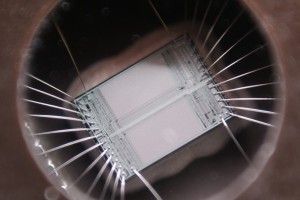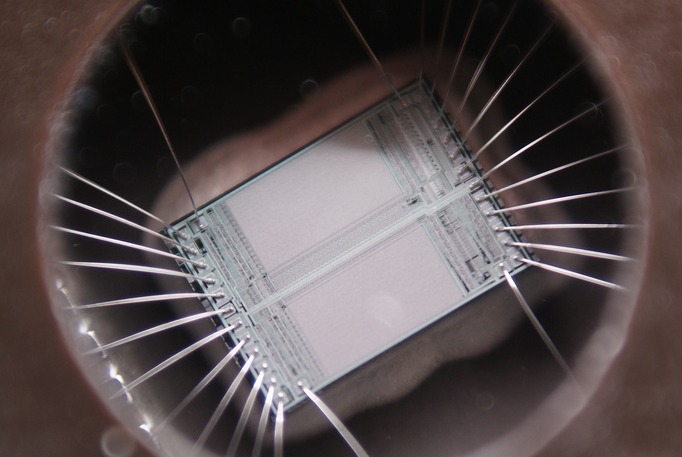Pruning microchips to make computers greener
ICT systems are a vital tool in mitigating climate change. They allow businesses to reduce their carbon footprint through video conferencing and specialist systems that make transport more efficient. But the sector has its own environmental impact and scientists are coming designing ways to cut the energy demand of computers and make them more efficient.

 Video conferencing, intelligent transport systems, energy monitoring and management systems are examples of how ICT has enabled many businesses to cut costs and become more energy efficient, but as companies become more reliant on computers, the sector’s emissions increase.
Video conferencing, intelligent transport systems, energy monitoring and management systems are examples of how ICT has enabled many businesses to cut costs and become more energy efficient, but as companies become more reliant on computers, the sector’s emissions increase.
A 2009 report showed that almost 2 per cent of EU emissions were from ICT equipment delivering services but an international coalition of scientists has come up with a way to halve a computer chip’s energy consumption and simultaneously double its speed.
The technology is being trialled in visual and audio applications such as hearing aids where it can make batteries last four to five times longer.
The computer scientists, from Rice University in Houston, Nanyang Technological University (NTU) in Singapore and Switzerland’s Centre for Electronics and Microtechnology (CSEM), simply trimmed away rarely used portions of the circuitry that makes up a chip.
Principal investigator, Krishna Palem, said: "our initial tests indicate that the pruned circuits will be at least two times faster, consume about half the energy and take up about half the space of the traditional circuits."
Pruning the chip’s circuitry cuts the power it needs by allowing it to make mistakes.
Errors would limit the performance of an ICT system but the scientists designed the chips to limit errors by managing their probability.
Rice graduate student, Avinash Lingamneni produced chips made up of pruned circuits and standard ones to compare them.
“I believe this is the first time someone has taken an integrated circuit and said, 'Let's get rid of the part that we don't need,'" said Lingamneni.
This technique will be especially beneficial in visual or hearing devices like cameras and hearing aids because they are more able to handle any errors, according to the scientists.
The researchers unveiled their technique last week (16 March) at a conference in France and hope to produce a prototype chip for a hearing aid this summer.
But this is not the only advance being made in the area – Portuguese computer programmers released software in February that made server farms more energy efficient.
The software, called SPIRIT, could reduce global CO2 emissions from computers by approximately 5 million tonnes.
For further information:
ICT Impact on GHG Emissions in Energy-Intensive Industries
Image: jollyUK | Flickr




